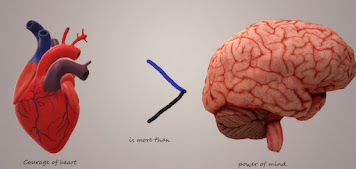The Friday Funda (TFF) No. 15, Date: 12th Aug. 2022 : Theme: Emotional Intelligence (EI) – Part - I
The world is becoming VUCA (Volatile, Uncertain, Complex and Ambiguous) with globalization and technological advancement (digital era). There are hyper competitions, frequent changes, conflicting demands from stakeholders, technological disruption, knowledge-based intervention and customer-driven processes among organizations. Human capital has become a scarce resource. Workplace adaptation, productivity, collaboration and job satisfaction for an employee in an organization have become more complex.
According to a study by World Economic Forum “Skills on-demand beyond 2020 would be complex problem-solving, critical thinking, creativity, people management, coordinating with others, emotional intelligence, judgment and decision making, service orientation, negotiation and cognitive flexibility." It specifies Emotional Intelligence (EI) as one of the many vital competencies.
“One needs to have 20 per cent IQ and 80 EQ to be successful in life”
He also wrote that “If your emotional abilities aren’t
in your own hands, if you don’t have self-awareness, if you are not able to
manage your distressing emotions, if you can’t have empathy and have effective
relationships, then no matter how smart you are, you are not going to get very
far.”
What is IQ and what is EQ?
IQ – Intelligence Quotient: Merriam-Webster defines IQ as “a number used
to express the apparent relative intelligence of a person. Determined by
either the ratio of the mental age (as reported on a standardized test) to the
chronological age multiplied by 100 - or a score determined by one's
performance on a standardized intelligence test relative to the average
performance of others of the same age.”
IQ is related to reason,
logic, rationale, calculation, estimation etc.
EQ – Emotional Quotient is defined as an individual’s ability to sense, understand and effectively apply the power and acumen of emotions to facilitate higher levels of collaboration and productivity. EQ is often referred to as Emotional Intelligence (EI) as the terms are interchangeable.
What is Emotion ?
Oxford English
Dictionary defines emotions as “any
agitation or disturbance of mind, feeling, passion; any vehement or excited
mental state”
Emotion is a neural impulse that moves an organism to action. Emotions are specific and intense and are a reaction to a particular event. Emotions are social.
Sometimes one uses the term emotion with affect, moods and feeling in an interchanging way. For a clear understanding, Affect is a general term that covers emotions, feelings and moods. Moods are diffused and unfocused. Feelings are personal and biographical and whereas *Emotions are social and action-oriented.
According to Goleman (1995), “emotion refers to a feeling and its distinctive thoughts, psychological and biological states and range of propensities to act” There are hundreds of emotions, along with their blends, variations, mutants and nuances. Some of the primary emotions are Anger, Sadness, Fear, Enjoyment, Love, Surprise, Disgust and Shame.
Fear is the most dominant and frequently occurring emotion.
Whereas Anger is the most destructive emotion.



Comments
Post a Comment